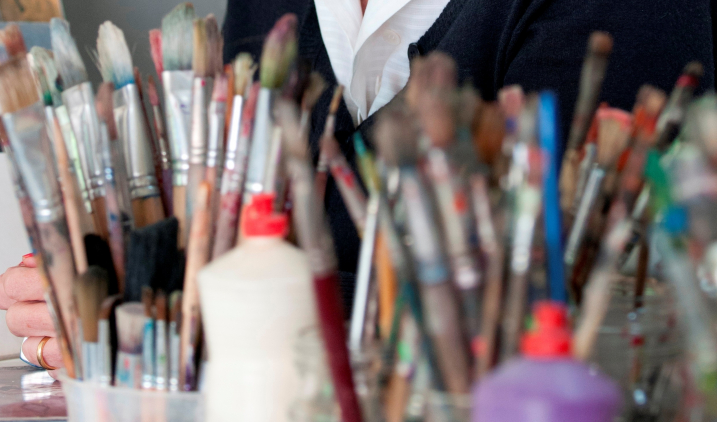Arts manager/arts co-ordinator
The role of arts managers/arts coordinators vary. Some have public arts and design briefs for new builds or renovations, others involve participatory arts activities and public health agenda and community consultation.
This page has information on the role of an arts manager in the NHS, including entry requirements and skills needed.

Working life
Some hospitals and trusts promote arts and cultural activities for staff, patients and families to promote well being. You'll engage with a range of art forms including visual art, literature, dance, music, crafts, new media, combined arts, circus and drama. As an arts manager or coordinator, you may also be responsible for cultural projects such as
- using visual arts to improve the hospital environment
- encouraging staff and patients to participate in the arts
- staging exhibitions or concerts by staff and patients
- developing artist- , poet- or writer-in-residence programmes
- running books clubs or reading aloud groups
- coordinating other art forms - dance, music, crafts, new media, circus or drama, for example.
Your work may also involve
- raising funds to support arts projects
- agreeing an arts strategy and policies
- working in partnership with other organisations such as other health and care agencies, voluntary sector agencies, arts organisations, local authorities and funders
Arts managers and coordinators in the NHS are based in offices in a hospital or headquarters building. They spend time on hospital wards.
The precise nature of the work and job title will vary between health organisations and so when searching for vacancies, it is important to check each job description and person specification carefully.
As well as in the NHS, arts coordinators and managers also work in voluntary organisations and other agencies.
Entry requirements
There are no set entry requirements. The precise nature of the work and job title will vary between health organisations and so when searching for vacancies, it is important to check each job description and person specification carefully.
Employers usually expect arts managers and coordinators to have a relevant qualification at degree or postgraduate level.
Relevant courses include
- MA in Arts Practice (Arts, Health and Wellbeing) at University of South Wales
- MA in Arts, Health and Wellbeing at Plymouth Marjon University.
Degree courses are three years full time or up to six years part time. To get onto a degree course you usually need
- two or three A levels, including an art or design subject, along with up to five GCSEs (grades A-C), including English and maths
or alternative qualifications, including
- BTEC, HND or HNC
- relevant NVQ
- foundation court in art and design
- access course
- equivalent Scottish or Irish qualifications
For a postgraduate certificate, diploma or Masters, you usually need a good degree in art or design. You may be accepted on a course with a relevant professional qualification in, for example, teaching, nursing, community work or social work.
Employers also expect arts managers and arts coordinators to have experience in delivering and coordinating arts projects. This could be from the NHS or elsewhere and could be voluntary or paid.
Skills needed
Arts managers and coordinators need to be
- interested in arts and how they are related to health
- creative
- flexible
- resourceful
- willing to work with people from all walks of life and all ages
You'll also need
- artistic and creative skills
- good organisational skills
- project management skills
Training and development
When joining the NHS, arts managers are given the training they need including an introduction to the trust and its systems and procedures.
Arts managers and coordinators are expected to keep their skills and knowledge of the arts world up to date. They are encouraged to attend courses and conferences. The Arts Council and London Arts in Health Forum list courses and events where they can network with others doing similar work.